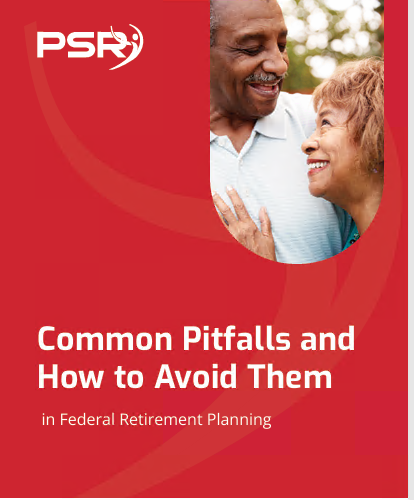Key Takeaways
-
Retiring early can cost you significant financial security, health benefits, and career potential that may not be obvious at first glance.
-
Understanding the long-term trade-offs now can help you make a more informed, confident decision about when the right time to retire truly is.
The Allure and the Reality of Early Retirement
The idea of early retirement can seem incredibly appealing. Escaping the daily grind, gaining more free time, and starting the “next chapter” sooner all sound ideal. Yet, for public sector employees especially, retiring early means more than simply leaving work behind. It often comes with hidden costs that affect your income, healthcare, and lifestyle for decades to come.
The Financial Sacrifices You May Not Expect
Reduced Pension Benefits
- Also Read: Divorce and Your Federal Pension—What Happens When You Split Assets and How It Could Affect Your TSP
- Also Read: What Happens to Your Federal Benefits After Divorce? Here’s the Lowdown
- Also Read: The Best FEHB Plans for 2025: Which One Fits Your Lifestyle and Budget the Best?
-
Example: Retiring at 57 instead of 62 could mean a 25% reduction in your monthly annuity.
This lower pension amount affects you not just for a few years, but for the rest of your life.
Thrift Savings Plan (TSP) Withdrawals
Withdrawing from your TSP before reaching age 59½ could expose you to a 10% early withdrawal penalty. Although there are exceptions for certain public sector employees retiring after age 55, not all retirees qualify. Even if you avoid penalties, starting withdrawals earlier means you may exhaust your savings faster.
Missed Earning Potential
Continuing to work even five more years can dramatically increase your retirement savings. Besides additional pension accrual, your TSP contributions, Social Security credits, and general financial reserves grow substantially during those extra working years.
Healthcare Coverage Complications
Losing Access to Employer-Sponsored Health Insurance
Most public sector retirees maintain coverage through the Federal Employees Health Benefits (FEHB) Program if they meet eligibility requirements. However, leaving before completing five years of FEHB enrollment or without immediate retirement eligibility could mean losing this vital coverage.
Purchasing individual health insurance in the private market can be costly, particularly for individuals between ages 55 and 64, who typically face the highest premiums.
Medicare Timing Issues
Medicare eligibility generally begins at age 65. If you retire earlier, you will likely face years of paying for private health insurance before you can transition to Medicare. This gap can be financially draining, especially without employer support.
Reduced Social Security Benefits
Social Security benefits are based on your highest 35 years of earnings. Retiring early means fewer working years, possibly resulting in a lower benefit calculation. Additionally, while you can start collecting Social Security as early as age 62, doing so permanently reduces your monthly payment compared to waiting until your Full Retirement Age (FRA) of 67 (for those born in 1963).
-
Reduction: Claiming at 62 instead of 67 reduces your benefit by about 30%.
Psychological and Lifestyle Adjustments
The Loss of Professional Identity
Your work likely provides more than just income. It offers a sense of purpose, daily structure, and social interaction. Leaving this environment earlier than planned can lead to feelings of isolation, loss of purpose, and even depression if not carefully prepared for.
Boredom and Lack of Fulfillment
Without clear plans and goals for your post-retirement years, early retirees sometimes find themselves adrift. Activities you once longed for, like traveling or hobbies, may not fill every day meaningfully.
Hidden Tax Implications
Retirement income is still taxable. Pensions, TSP withdrawals, and eventually Social Security benefits often trigger federal (and sometimes state) taxes. Early retirement can place you in unexpected tax brackets depending on how and when you access these funds.
Moreover, if you are not yet eligible for penalty-free withdrawals and need to tap into retirement accounts prematurely, you may increase your taxable income even more.
Family and Survivor Benefit Considerations
Choosing early retirement also impacts survivor benefits. For example, reduced annuities could mean smaller survivor pensions for spouses or other dependents. If your retirement plan doesn’t fully account for your family’s financial future, early retirement could inadvertently jeopardize their security.
Timing Really Matters
Staying Just a Few More Years Makes a Big Difference
Remaining employed until you reach:
-
20 Years of Service: In some cases, like special category employees, hitting 20 years triggers enhanced benefits.
-
30 Years of Service or Minimum Age + Years Combination: Avoid reductions entirely by reaching your standard full retirement eligibility.
-
Age 62: Unlocks higher annuity computations for many employees under FERS.
COLA Eligibility
Cost-of-Living Adjustments (COLAs) are not automatic for early FERS retirees. Typically, only those retiring on immediate, unreduced pensions, or CSRS retirees, are eligible for COLAs right away.
If you retire early under MRA+10, you will not receive COLAs until age 62, meaning your benefit will not keep pace with inflation during those early years.
What You Should Seriously Evaluate Before Deciding
-
Have you fully met your retirement eligibility criteria?
-
Will you maintain FEHB coverage immediately upon retirement?
-
Have you accounted for the gap between retirement and Medicare eligibility?
-
Do you have sufficient funds outside of TSP or pension to support a longer retirement?
-
Are you emotionally ready for the psychological shift retirement brings?
-
Have you consulted with a licensed professional to fully model different retirement timing scenarios?
Preparing a More Flexible Retirement Strategy
Rather than locking yourself into an early retirement decision today, consider building a phased approach:
-
Deferred Retirement: You separate from service early but delay collecting your annuity until you meet full eligibility requirements, avoiding penalties.
-
Part-Time or Bridge Employment: Reduce your hours but continue working in a different capacity for additional income and benefits.
-
Post-Retirement Employment Plans: Having a plan to engage in consulting, part-time work, or volunteerism can fill emotional and financial gaps.
Why 2025 Makes Early Retirement Even Trickier
In 2025, inflation remains higher than historical norms, healthcare costs continue rising, and the need for longer retirement income stretches even further due to increased life expectancy. What felt like “enough” five years ago now demands more careful calculation.
The federal workforce is also facing evolving legislative proposals that could affect retirement benefits, healthcare contributions, and pension calculations. Choosing to retire early without fully accounting for these shifting dynamics can leave you underprepared.
The Bigger Picture: It’s Not Just About Quitting Early
Thinking about early retirement requires much more than a desire to stop working. It demands a thoughtful evaluation of your long-term security, healthcare needs, emotional fulfillment, and family protection.
There are no “do-overs” in retirement decisions—especially when benefits like pensions, FEHB, and Social Security are involved. Take the time now to explore the true costs beyond the freedom early retirement promises.
Make an Informed Move for Your Future
Before you finalize any early retirement plans, it is critical to evaluate all the pieces—financial, healthcare, tax, emotional, and family. Early retirement might seem like the shortcut to a dream lifestyle, but you could unintentionally be giving up decades of comfort and security.
If you want to ensure your decision aligns with your goals and protections, consider reaching out to a licensed professional listed on this website for personalized retirement planning assistance.











